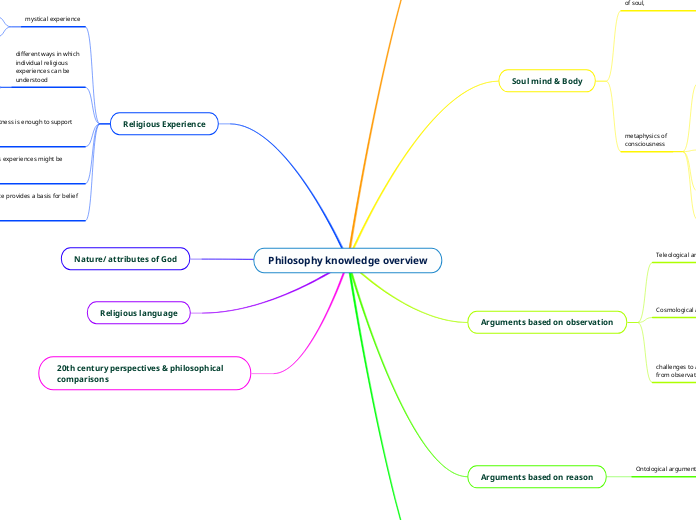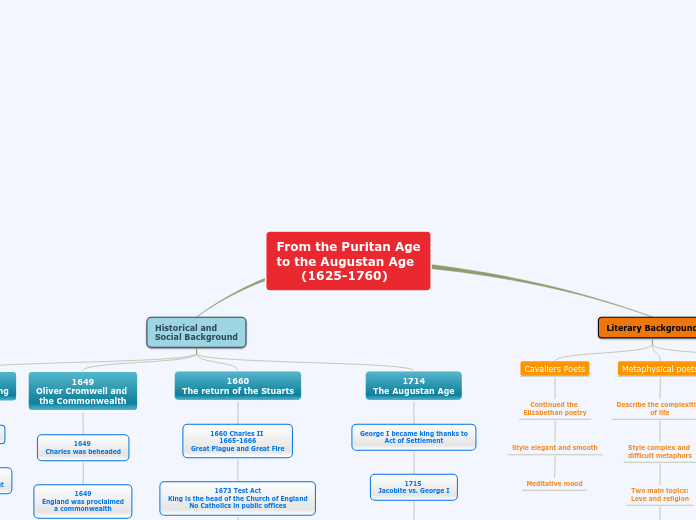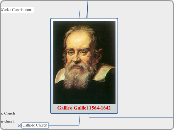Philosophy knowledge overview
20th century perspectives & philosophical comparisons
Religious language
Nature/ attributes of God
Religious Experience
whether or not religious experience provides a basis for belief in God or a greater
power
whether or not corporate religious experiences might be considered more reliable or
valid than individual experiences
whether personal testimony or witness is enough to support the validity of religious
experiences
different ways in which
individual religious
experiences can be
understood
the product of a physiological effect
psychological effect such as illusion
union with a greater power
mystical experience
Conversion, including examples of
William James, views & conclusions
Problem of Evil
whether or not it is possible to successfully defend monotheism in the face of evil
which of the logical or evidential aspects of the problem of evil pose the greater
challenge to belief
theodicies
Hick’s reworking of the Irenaean theodicy which
gives some purpose to natural evil in enabling
human beings to reach divine likeness
a ‘vale of soul-making’ can justify extent of evil?
Augustine’s use of original perfection and
the Fall
spare God from blame?
Different presentations
evidential (the evidence of so much terrible evil
in the world)
logical (the inconsistency between
divine attributes and the presence of evil)
Arguments based on reason
Ontological argument
whether a posteriori or a priori is the more persuasive style of argument
whether or not existence can be treated as a predicate
Kant's criticisms
Gaunilo's criticisms
Anselm
Arguments based on observation
challenges to arguments
from observation
Logical fallacies?
Evolution
Hume
Cosmological argument
Aquinas’ first three ways
Contingency
Cause
Mover (actuality/ potentiality)
Teleological argument
Paley
Aquinas’ Fifth Way
Soul mind & Body
metaphysics of
consciousness
any discussion about the mind-body distinction is a category error
whether the concept of ‘soul’ is best understood metaphorically or as a reality
materialism
the rejection of a soul as a spiritual substance
the idea that mind and consciousness can be
fully explained by physical or material
interactions
substance dualism
Descartes’ proposal of material and spiritual
substances
mind and body are distinct
substances
the philosophical language
of soul,
Aristotle’s view of the soul as the form of the
body; the way the body behaves and lives;
something which cannot be separated from
the body
Plato’s view of the soul as the essential and
immaterial part of a human, temporarily united
with the body
Ancient philosophical influences
Aristotle
Prime mover
4 causes
Use of the senses (empiricism
Plato
Analogy of the cave
The Forms
Understanding of reality
Reason/ rationalism









